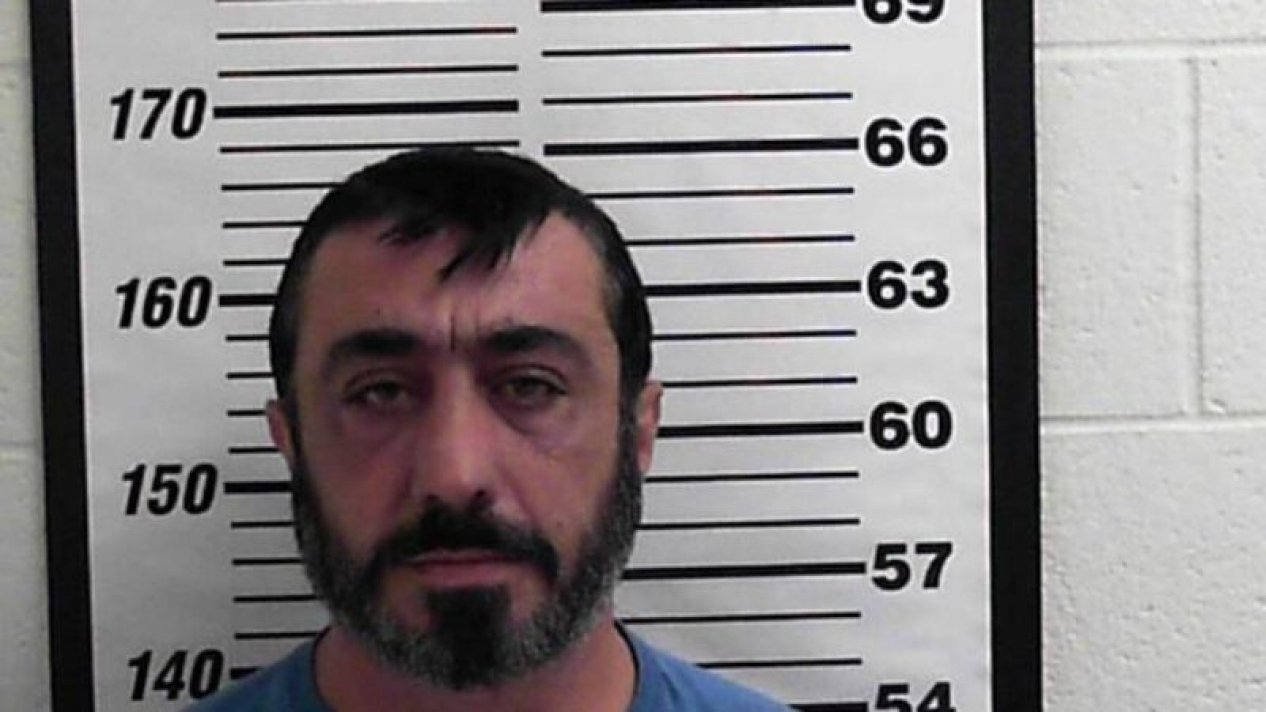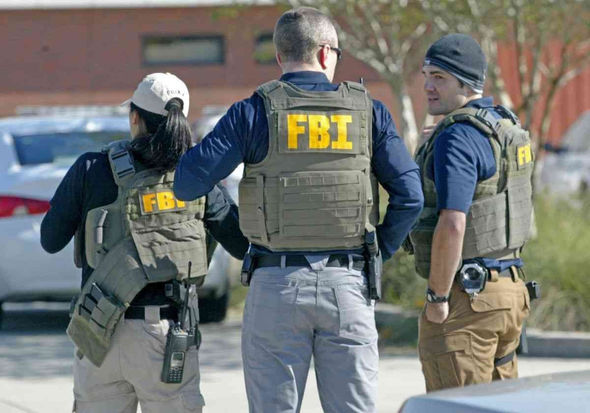
Recently, sensational news have spread that former FBI special agent Babak Broumand was found guilty of taking a bribe from a lawyer associated with the Armenian mafia.
According to the US Justice Department, Babak Broumand, 56, of Lafayette, California, was found guilty of one count of conspiracy, two counts of bribery of a public official, and one count of monetary transactions in property derived from specified unlawful activity.
United States District Judge R. Gary Klausner scheduled a January 30, 2023 sentencing hearing, at which time Broumand will face statutory maximum sentences of 15 years in federal prison for each bribery count, 10 years in federal prison for each unlawful monetary transactions count, and five years in federal prison for the conspiracy count.
Judge Klausner ordered Broumand remanded into federal custody.

Broumand, an FBI special agent from January 1999 until shortly after search warrants were served on his home and businesses in 2018, was responsible for national security investigations and was assigned to the FBI Field Office in San Francisco.
According to evidence presented at his 11-day trial, from January 2015 to December 2018, Broumand accepted cash, checks, private jet flights, a Ducati motorcycle, hotel stays, escorts, meals, and other items of value from an organized crime-linked lawyer – identified in court papers as “E.S” and each man acted to conceal the true nature of their corrupt relationship.
Soon after the bribery scheme began, E.S. asked Broumand to query the FBI database for Levon Termendzhyan, an Armenian organized crime figure for whom E.S. had worked. The database search “rang all the bells” and revealed an FBI investigation in Los Angeles, according to court documents, which note that Broumand accessed the FBI case file on Termendzhyan repeatedly in January 2015. Broumand also allegedly accessed the Termendzhyan FBI case file in May 2016.
Faktyoxla Lab. has tried to figure out this story.
It turned out that this whole story began at the end of April 2020, when FBI agents arrested Babak Broumand at his home in the town of Lafayette, half an hour from San Francisco. On the same day, a federal magistrate judge briefed Broumand on charges of conspiring to receive bribes and gifts totaling more than $200,000 in exchange for providing confidential law enforcement information to a lawyer associated with Armenian organized crime.
From the 40-page Criminal Complaint provided to the magistrate judge by FBI investigator Michael Torbic, it follows that on April 29, 2015, in Los Angeles County of the Central District of California, the defendant Babak Broumand, a public servant, namely, a FBI special agent, in charge of national security, illegally directly and indirectly demanded, sought, received, accepted and agreed to receive valuable things, and for this he violated his official powers.
Specifically, Defendant Broumand illegally demanded and received a Ducati motorcycle and accessories totaling more than $30,000 from Individual A, who was involved in criminal activities and was connected to an organized crime group. For this, Broumand sent enquires to the law enforcement databases and shared the results with Individual A to help him and his accomplices avoid investigation and prosecution. As a federal law enforcement officer, Babak Broumand was required to honestly investigate possible criminal activity, use law enforcement databases only for lawful purposes, and not share information obtained there with others to help them evade investigation and prosecution.
It follows from the case that Babak Broumand, an American of Armenian origin, served in the FBI for two decades and retired in January 2019, a month after searches were carried out in his house and the office of his company. By that time, it was established that he took bribes from early 2015 to 2017, while serving in the San Francisco branch of the bureau, where he was engaged in national security and the development of secret informants.
During this period, Broumand allegedly received about $10,000 a month in bribes from a lawyer who was licensed in 2016 and who is in the case as CW1 (Cooperating Witness). The preliminary charge lists deposits and several bank accounts, as well as various gifts, including the aforementioned motorcycle, as well as payment for hotels, travel and escort services. According to him, CW1 paid for Broumand’s stay at the Beverly Hills Hotel and Beverly Wilshire hotels and for his trips from San Francisco to Los Angeles, and paid from $500 to $1,500 for girls for an FBI agent per visit.
Babak Broumand took almost all deposits in cash, although in one case it was a bank-certified check for $30,000 in the name of Love Bugs, a lice-removal company owned by the Broumands. With this money, which he later tried to explain by the sale of the boat and a loan received from the bank, Broumand made an advance payment for the purchase of a dacha near Lake Tahoe for $1.3 million. The Love Bugs corporate credit card was used to pay tens of thousands of dollars to purchase high-end merchandise at Cole European, Sonnen Porsche, Beverly Hill Watch Company and Neiman Marcus.
Babak Broumand met CW1 lawyer in the fall of 2014 at the private cigar bar Grand Havana Room in the fashionable Beverly Hills district and, as Los Angeles Times reporter Matthew Ormseth wrote, “in smoky, members-only cigar lounges and the bars of luxurious Beverly Hills hotels, Broumand rubbed shoulders with organized crime figures and their corrupt associates in law enforcement.”
Specifically, nothing is known from the available materials of the Broumand case about the connection of Termendzhyan-Dermen with the “Armenian mafia” in the United States, but there is a certificate dated April 30, 2020 in the case, in which the prosecutor’s office informs the court that this criminal case may be related to the case United States v. Edgar Sargisyan, as both cases stem from the same conspiracy, common scheme and deals.
In September 2014, at the Grand Havana cigar lounge in Beverly Hills, Broumand met a lawyer who noticed the agent had expensive tastes. Seeing Broumand sporting a gold Rolex and a Gucci belt, the lawyer later told investigators he saw “an opportunity to recruit” and began to solidify their relationship.
His relationship with Broumand turned corrupt in 2015, when he talked with the agent about his salary and asked if he was willing to “do something on the side,” the affidavit said. In exchange for $10,000 a month, paid in $100 bills, Broumand queried the lawyer’s name and others in secret law enforcement databases, which can disclose subjects of investigations conducted by the FBI and other agencies.
The first was a request to look up CW1 in the FBI database and "defuse" any interest in him from law enforcement. In compliance with this request, Babak Broumand told CW1 that he had come under the bureau’s investigation for suspected credit card fraud in 2008 or 2009, with the indictment specifying that such data could only come from a law enforcement database, where not everyone is a member.
CW1 then asked Broumand to search the same database for a member of the "Armenian mafia" for whom the lawyer worked. The search was not difficult, since Levon Termendzhyan, aka Lev Aslan Dermen, was well known there. The investigation found that Babak Broumand twice inquired into Termendzhyan’s operative case in January 2015 and May 2016, and in April of this year, a federal court in Salt Lake City, Utah found him guilty in a large case of embezzlement of a billion dollars in tax subsidies for biofuels by falsifying trade reports.
In order to obtain this information, Babak Broumand took a certain risk, telling stories to his colleagues why he needed it, as was the case, in particular, with Termendzhyan. Even more thoughtlessly, Broumand acted by giving Levon his FBI parking pass, which was noticed, and the police in the city of Burbank seized this pass, starting an internal investigation. By that time, the relationship between the lawyer and the FBI agent began to weaken, and in May 2016 it completely stopped, although Babak Broumand offered new options.
Who is Levon Termendzhyan, whose name appears in the criminal case?
It is known that in the United States the court found guilty businessman Levon Termendzhyan, also known as Lev Dermen. He took part in a scam organized by the sect of Mormon polygamists.
Dermen helped launder the hundreds of millions of dollars that the Kingston clan, a family religious group that promotes polygamy, incest and paedophilia. It was the largest tax scam in Utah history, according to US Attorney John Huber. They managed to steal more than $1 billion.
Washakie Renewable Energy, which is owned by the Kingston clan, has been receiving tax breaks for the production of biodiesel for several years. In fact, the sectarians bought it in India and Panama and resold it in the US under the guise of their own product.
Dermen managed to convince the Kingstons that he had protection in the government that would save them from possible persecution. It was a hoax, but the sectarians believed and began to import more and more biodiesel into the country. They sold it at Dermen gas stations and received huge tax breaks. With public money, the accomplices bought expensive real estate and luxury sports cars.
In 2015, authorities refused to pay $650 million in tax credits and launched an investigation. Three years later, Dermen and several members of the Kingston clan were charged with fraud, money laundering and a number of other crimes. The author of the scam, Jacob Kingston, his brother and two relatives made a deal with the investigation and pleaded guilty. In court, Kingston testified against Dermen.
But be that as it may, more than 200 years of American history have proven that the Armenian ethnicity does not disappear anywhere in the melting pot. Every time the US law enforcers announce the defeat of another Armenian ethnic criminal group, as a rule, complaints are received from the "senior" of this ethnic group to the press and the authorities. They claim that thus, allegedly, a shadow is cast on the majority of honest workers, and so on. And as you can see, they rely on corrupt businessmen, law enforcement officers and pocket politicians...




















